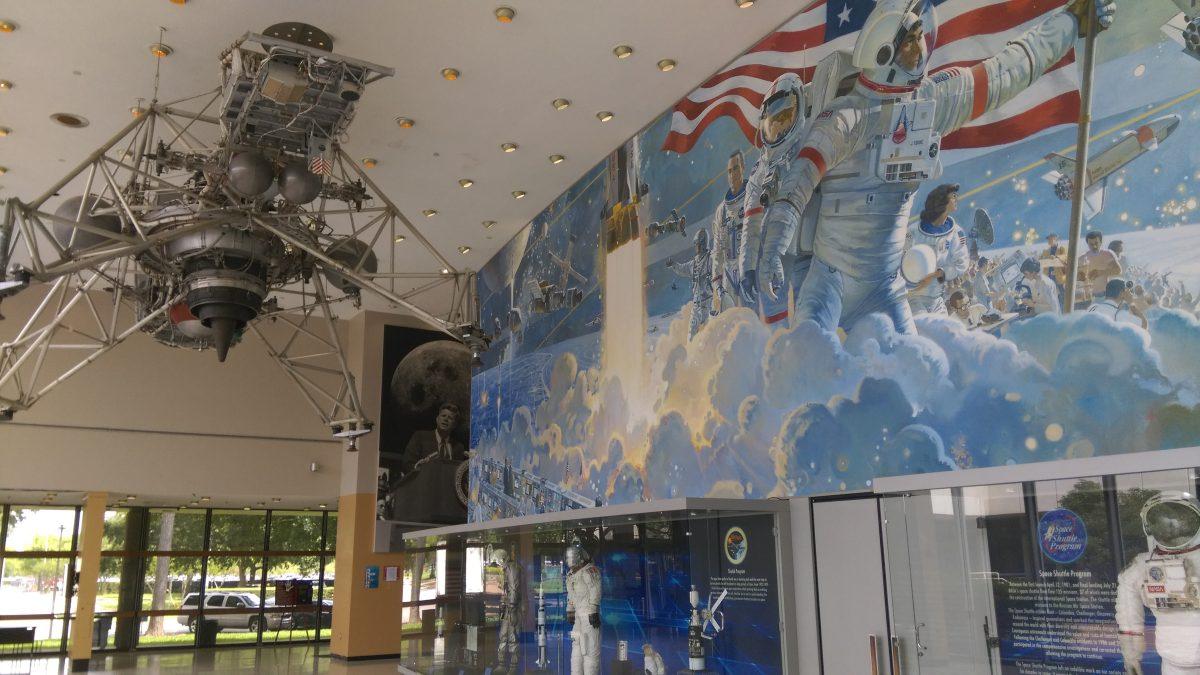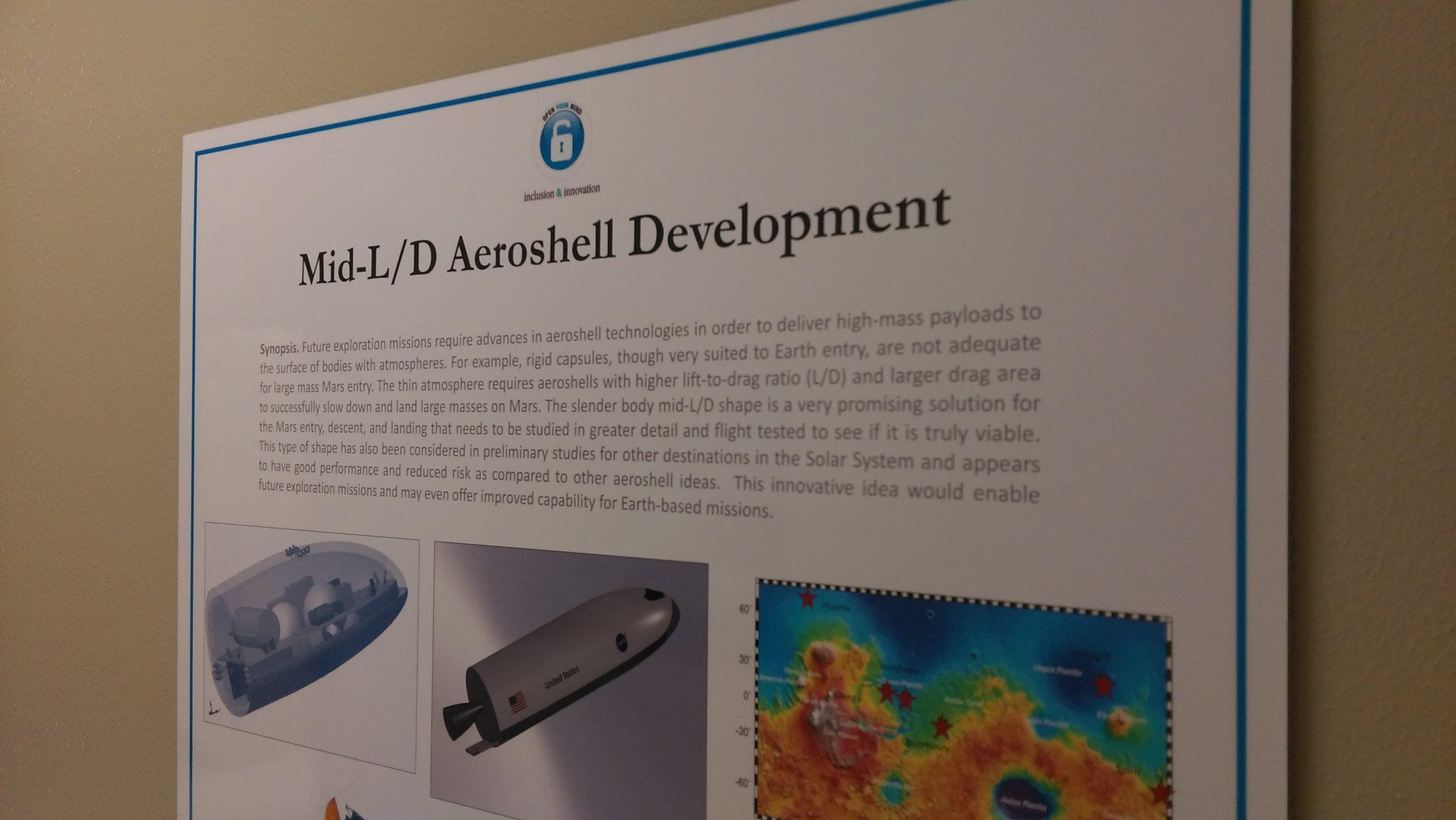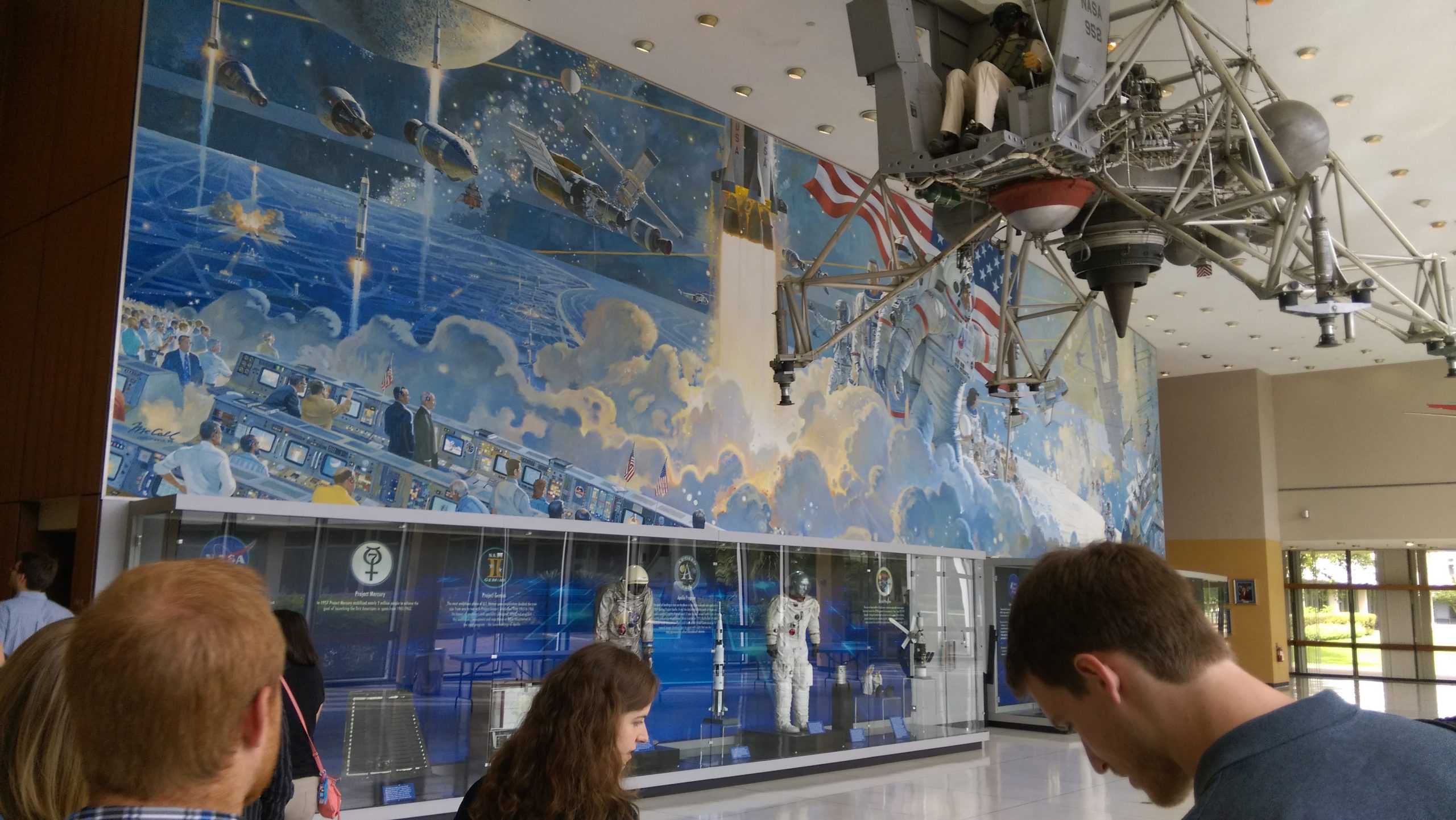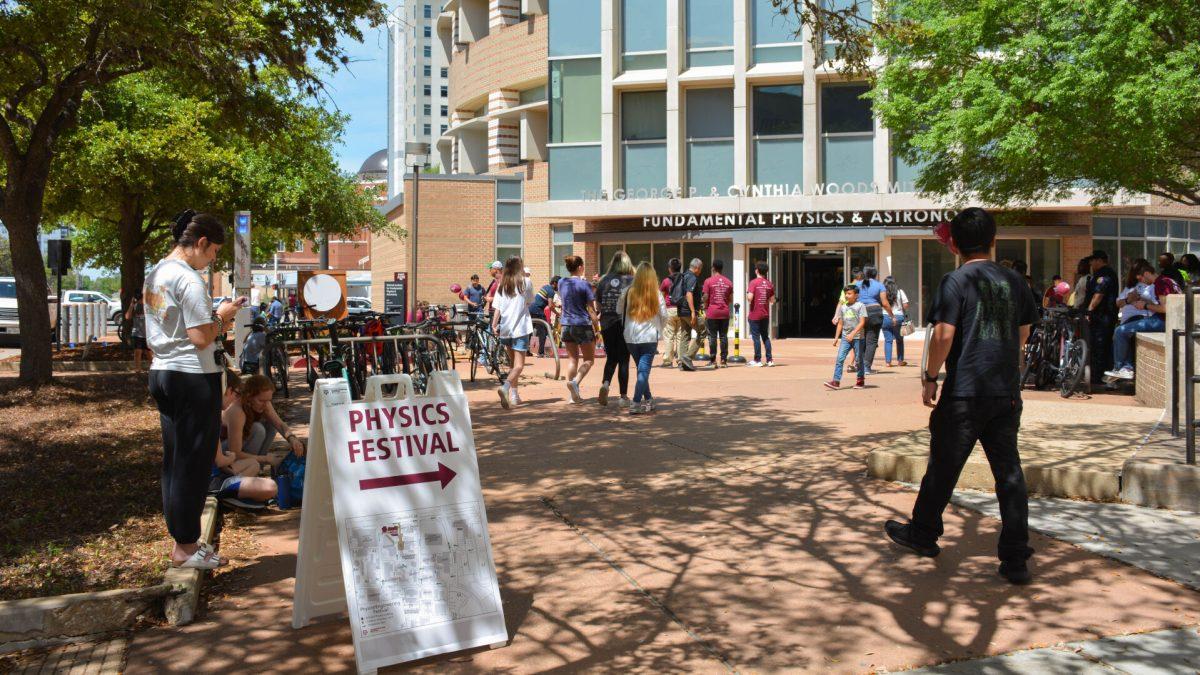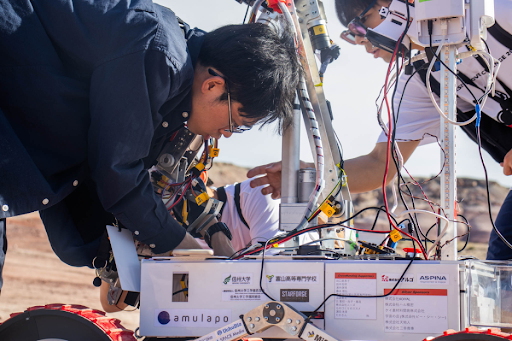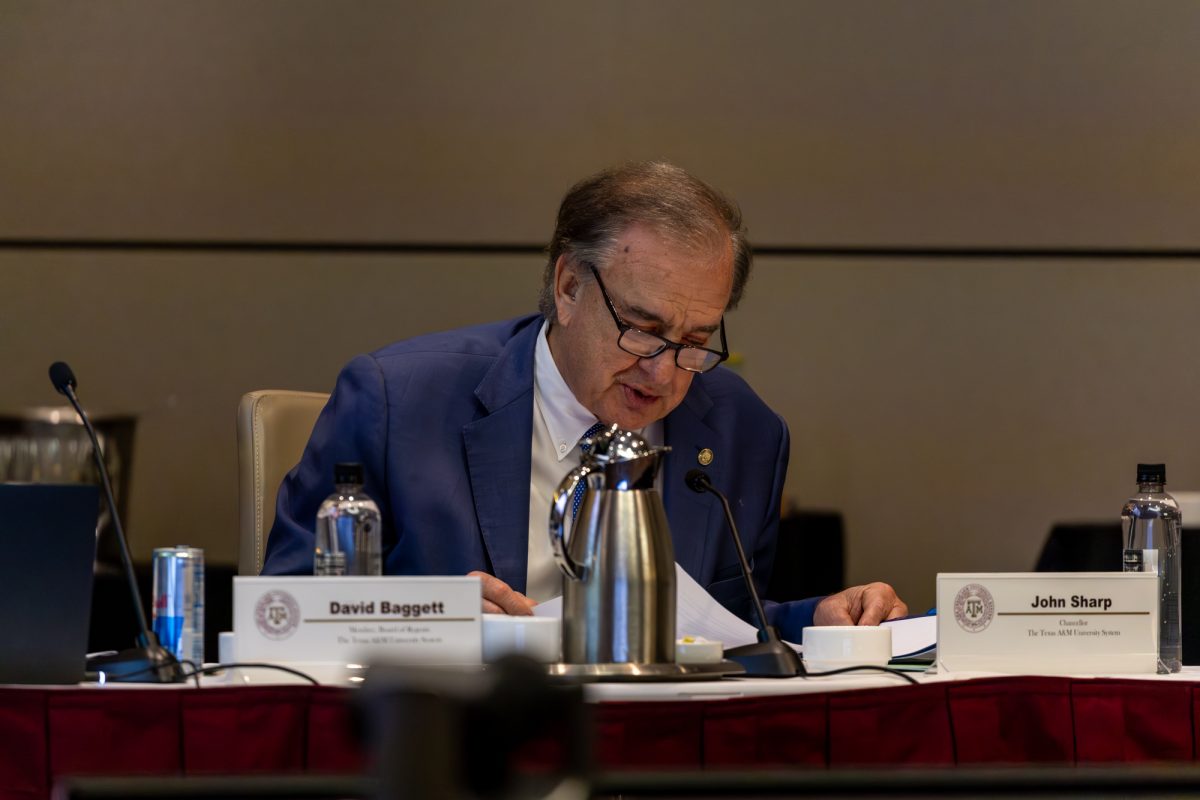It might have been the Lunar Lander suspended above the hall or the casual lunch discussions on astrodynamics, but sometime after I drove onto NASA Johnson Space Center’s campus it hit me – incredible things happen here, and I get the privilege to experience it all for the next 10 weeks.
Week one as a NASA intern has been a thrilling reminder that human space exploration is not just limited to history and to Hollywood. I wasn’t more than 15 minutes on the job when the engineer I reported to launched into a conversation on what spacecraft profile would best maneuver through the Martian atmosphere to the surface. The classic blunt-nosed cone from the Apollo Era wouldn’t slow the craft down enough to ensure the first Martian astronauts lived to tell the tale, as Mars’s atmosphere is too thin to bleed off speed. It’s not the question of “how do we get there,” but rather, “how do we stop?” that I’ll be working on.
The highlight of the first day was the chance to hear about NASA’s future from its new Deputy Administrator, Dava Newman. Newman’s resume alone could be a motivational speaker’s talking points. She studied engineering and played varsity basketball at Notre Dame before tackling her Master’s and PhD at the Massachusetts Institute of Technology. She became an MIT professor, designed skin-fitting next-gen astronaut suits and led MIT’s Space Policy Institute before President Obama nominated her as Deputy Administrator.
“The future is not a gift, it’s an achievement,” Newman said, quoting Robert Kennedy as she described her vision for NASA’s next few years. She talked new and ambitious space missions, more powerful rockets and the Orion spacecraft as critical technologies to develop if NASA is to deliver its promise to the American people – land men and women on Mars, and return them safely to the Earth. Newman’s accomplishments and vision were the perfect start to the summer’s work.
My race to repeat the glory days of Apollo however was thwarted by the ever-present office enemy: computer log-ins. Accounts had to be made, passwords were set and reset, IT administrators were called and called again, and the day ended with the promise that hopefully everything will work tomorrow. I’m sure Neil Armstrong and Gene Kranz never had to come up with multiple 16-character passwords, but then again they didn’t have smartphones and supercomputers.
The first few days at JSC have given me so much to look forward to. I’ve spent the past three years studying how the physical world is interpreted through physics and mathematics, and I’ve spent more time studying in libraries and dorm rooms than I’d care to admit. It is exciting to see how all that work translates into concrete and fantastic actions – men and women walking on the moon, living in orbit, and exploring Mars. I’ve got so much to learn. It’s going to be a good summer.
John Rangel is an aerospace engineering senior and Science & Technology Editor for The Battalion in the Fall and Spring semesters. He is a NASA intern at Johnson Space Center this summer, where he works on technologies related to future Mars missions.
An Aggie at NASA
June 10, 2015
Sci Tech Editor John Rangel will spend 10 weeks interning at NASA’s Johnson Space Center this summer
0
Donate to The Battalion
$1865
$5000
Contributed
Our Goal
Your donation will support the student journalists of Texas A&M University - College Station. Your contribution will allow us to purchase equipment and cover our annual website hosting costs, in addition to paying freelance staffers for their work, travel costs for coverage and more!
More to Discover




